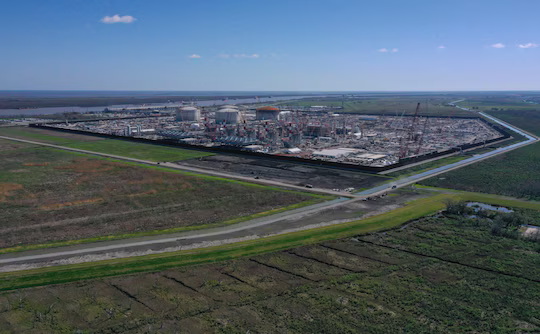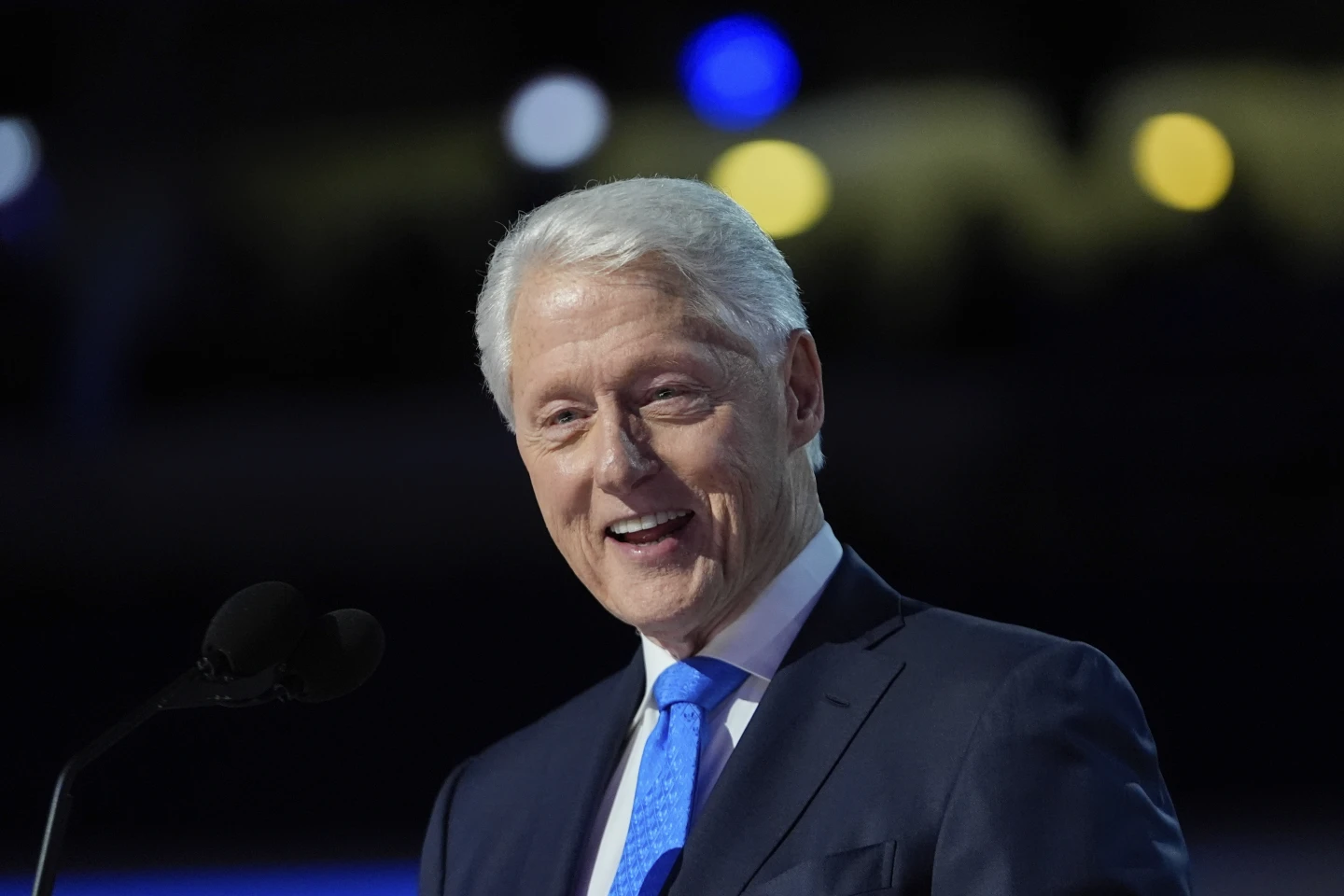Biden Administration Releases Critical LNG Export Study, Complicating Trump’s Energy Plans

The Biden administration has unveiled a significant study on the environmental and economic impact of liquefied natural gas (LNG) exports, potentially creating a new hurdle for former President Donald Trump’s ambitions to rapidly expand the US LNG industry if he returns to office, the Washington Post reports.
The report, conducted by the Department of Energy’s (DOE) national laboratories, warns that unfettered LNG exports could lead to higher greenhouse gas emissions, increased domestic energy prices, and greater pollution in vulnerable communities. The study’s findings are expected to be cited in future legal challenges against the approval of new LNG export facilities, a key component of Trump’s energy platform.
The study’s conclusions could complicate Trump’s pledge to lift a Biden-era pause on LNG project approvals “on the very first day” of a potential second term. Critics of the pause argue it has discouraged investment and job creation in the natural gas sector, but the new analysis raises fresh questions about the long-term environmental and economic consequences of expanding US LNG exports.
LNG is a form of natural gas that has been cooled to a liquid state for easier storage and transportation. The United States is currently the world’s largest LNG exporter, with its shipments playing a pivotal role in helping Europe reduce its reliance on Russian gas after the start of the war in Ukraine.
However, the DOE study estimates that increasing LNG exports would result in an additional 1.5 gigatons of greenhouse gas emissions globally by 2050 — equivalent to about 25% of the US’s total annual emissions. It also found that new export projects would increase wholesale domestic natural gas prices by roughly 31%, leading to higher household energy costs of more than $100 per year for American consumers.
The report also highlighted the disproportionate impact of LNG export facilities on disadvantaged communities, particularly along the Gulf Coast, where many of the proposed projects are located. Residents in this region, already burdened by pollution from petrochemical plants, would face greater exposure to methane and other harmful pollutants, according to Energy Secretary Jennifer Granholm.
“These are the facts,” Granholm said during a call with reporters. “The final decision, of course, is now in the hands of the next administration. We hope that they’ll take these facts into account to determine whether additional LNG exports are truly in the best interest of the American people.”
The DOE study could derail Trump’s goal of fast-tracking LNG export permits, a policy he views as critical to reviving the domestic natural gas industry. Trump has repeatedly criticized the Biden administration’s pause on LNG project approvals, vowing to reverse it if re-elected.
“The incoming administration clearly wants to take a different approach and start approving permits as fast as they can,” said Ben Cahill, an energy scholar at the University of Texas at Austin. “But the study’s findings could complicate that approach.”
The Trump administration is expected to challenge the study if Trump returns to office. According to analysts at ClearView Energy Partners, replacing the DOE’s analysis with a more “industry-friendly” report could take “anywhere from several months to several calendar quarters.”
While LNG is viewed as a “bridge fuel” in the transition away from coal, it still has significant climate implications. Methane, the primary component of natural gas, is a far more potent greenhouse gas than carbon dioxide. Although US LNG exports have historically displaced coal use overseas, the study warns that in the coming years, LNG is more likely to displace renewables than coal, thereby undercutting climate goals.
Chris Wright, Trump’s pick to head the Energy Department, has argued that LNG exports benefit the global climate by replacing coal.
“Think of the climate movement — this is what they want, right?” Wright said in a February interview with CNBC. “You want to displace coal with natural gas if you want to lower not just pollutants but greenhouse gases.”
LNG industry leaders and Republican lawmakers have criticized the Biden administration’s approach, arguing that limiting US LNG exports could weaken America’s position in the global energy market.
Toby Rice, CEO of EQT, the largest natural gas producer in the US, said the Biden administration appears “ashamed” of its LNG approval pause. Speaking at the North American Gas Forum, Rice suggested that the administration regrets its decision.
“If it was a bold action, you would be talking about it,” Rice said. “The fact that you never hear them talk about it is probably a sign that they wish it never happened.”
Energy executive Daniel Yergin, vice chairman of the financial data firm S&P Global, echoed similar concerns. He warned that slowing down US LNG approvals would create an opportunity for other global suppliers, such as Qatar and Canada, to fill the gap.
“This is a competitive global marketplace,” Yergin said. “If there is a gap from the US, others will happily fill it.”
There is ongoing debate over the future of global LNG demand. Some analysts project that annual LNG consumption will rise from 400 million tons in 2023 to nearly 600 million tons by 2030, driven primarily by demand in Southeast Asia.
But others caution that the US LNG industry may face a market glut, especially if too many new export projects are approved. The DOE study suggested that the LNG facilities currently under construction would meet future global demand through 2050, with most of the new demand coming from China.
The energy security implications are also significant. Supporters of expanded LNG exports argue that US gas exports enhance global stability, especially in Europe, where reliance on Russian gas has become a geopolitical risk. Opponents counter that the long-term climate and community health costs of such projects outweigh the energy security benefits.
Under the Natural Gas Act, federal approval of LNG export projects requires sign-offs from both the Federal Energy Regulatory Commission (FERC) and the Department of Energy (DOE). FERC oversees the siting and construction of facilities, while the DOE must determine whether exporting natural gas to non-free-trade countries is in the “public interest.”
Even before the DOE study was released, FERC had already revoked a prior approval for the Calcasieu Pass 2 LNG project in Louisiana, citing flaws in the original analysis of the project’s air pollution impact. Venture Global, the project’s owner, called FERC’s decision “unnecessary” and maintained that the facility “unquestionably meets or exceeds all required environmental air standards.”
The DOE’s latest analysis is expected to provide a stronger basis for future legal challenges to LNG export approvals, giving environmental groups ammunition to sue. Critics have labeled some LNG projects as “climate bombs” due to their massive carbon footprints.
With the release of the DOE’s LNG study, the Biden administration has laid the groundwork for stricter oversight of LNG export projects. The study highlights the long-term risks of increased greenhouse gas emissions, higher domestic energy prices, and negative impacts on vulnerable communities.








